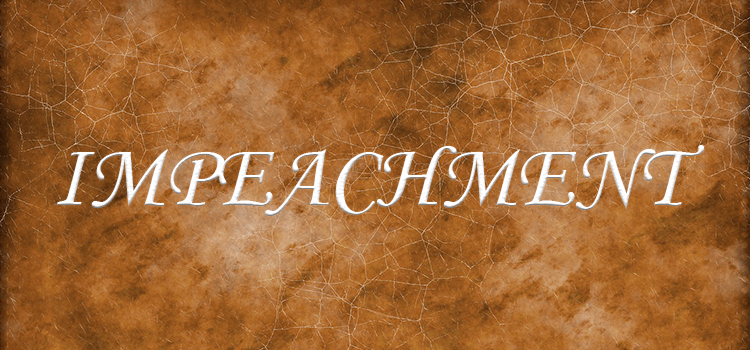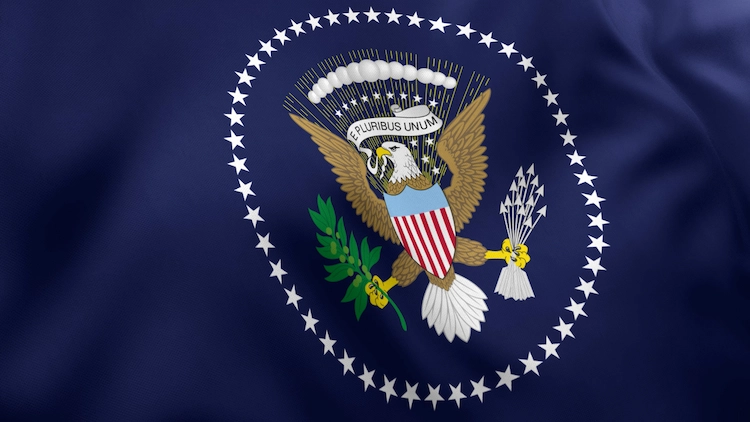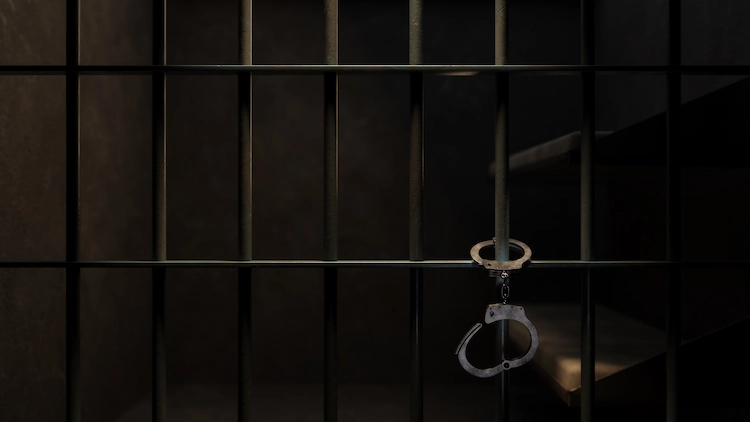The Who’s Who of Impeachment

By design, impeachment is a long and formal process involving a number of key players. The most important are set forth in the U.S. Constitution, including that the House of Representatives has the power to impeach, while the Senate has power to try impeachments. Other roles are defined by the rules, procedures and precedents of the two houses of Congress.
Who Can Be Impeached?
The Constitution, Article 2, Section 4, clearlystates who can be impeached: “The President, Vice President andall civil officersof the United States.” The term “civil officer” has been interpreted broadly to include all U.S. officers holding their appointments under the federal government, including members of the federal judiciary, members of the cabinet, members of Congress.
Federal officials found to have engaged in “treason, bribery, or other high crimes and misdemeanors” may be impeached. If convicted, they face “removal from Office, and disqualification to hold and enjoy any Office of honor, Trust or Profit under the United States.”
Most states also have mechanisms in place to impeach public officials, although the specific procedures vary from state to state. As on the federal level, it is rare for state officials to be impeached. One of the most recent example is Illinois Governor Rod Blagojevich who was removed from office on corruption charges in 2009.
Who Can Initiate Impeachment Proceedings?
Article I, Section 2, Clause 5 of the Constitution gives the House of Representatives the sole power to bring charges against federal officers, including the President. However, a variety of individuals can initiate the impeachment process. As the Congressional Research Service explained:
Impeachment proceedings may be commenced in the House of Representatives by a Member declaring a charge of impeachment on his or her own initiative, by a Member presenting a memorial listing charges under oath, or by a Member depositing a resolution in the hopper, which is then referred to the appropriate committee. The impeachment process may be triggered by non-Members, such as when the Judicial Conference of the United States suggests that the House may wish to consider impeachment of a federal judge, where an independent counsel advises the House of any substantial and credible information which he or she believes might constitute grounds for impeachment, by message from the President, by a charge from a state or territorial legislature or grand jury, or by petition.
Who Conducts the Investigation?
In all prior impeachment proceedings, the House has investigated the charges prior to holding any vote. Traditionally, investigating and reporting duties are delegated by resolution to the House Judiciary Committee. For instance, H.Res. 304 directed the Committee to “undertake an inquiry into whether grounds exist to impeach President William Jefferson Clinton, to report its findings, and, if the committee so determines, a resolution of impeachment.”
If the full committee, by majority vote, determines that grounds for impeachment exist, a resolution impeaching the public official and setting forth specific allegations of misconduct will be reported to the full House in the form of articles of impeachment. If at least one article of impeachment gets a majority vote, the president is impeached. This step of the process in akin to an indictment.
Who Serves as the Jury?
Under the Constitution, “The Senate shall have the sole Power to try all Impeachments.” So while the House may decide to impeach a public official, the Senate decides whether or not the official is removed from office.
The Constitution recognizes the solemnness of the Senate proceedings. It states: “When sitting for that Purpose, they shall be on Oath or Affirmation.” The Constitution also allows “Each House…to determine the Rules of its Proceedings.” Many of the rules currently in place date back to Thomas Jefferson. Other rules have been added over time. For instance, Rule XI, which allows the appointment of a small number of Senators to operate as a trial committee to gather evidence and take testimony, was enacted in 1936.
If a committee is employed, the committee must present a certified transcript of the proceedings to the full Senate. The Senate may also take further testimony in open Senate, or may order that the entire trial be conducted before the full Senate.
A conviction on an article of impeachment requires a two-thirds vote of those Senators present. If the public official is convicted on one or more of the articles against him or her, the Presiding Officer will pronounce the judgment of conviction and removal.
Who Are the Prosecutors?
The House must appoint managers to serve as prosecutors. Traditionally, members are selected from the Judiciary Committee. However, there is not a formal requirement. In 1998, 13 Republicans were selected from the committee to argue for the impeachment of President Bill Clinton.
Who Determines the Burden of Proof?
Under the Constitution, the grounds of impeachment are “treason, bribery, or other high Crimes and Misdemeanors.” Notably, the Constitution does not define “high crimes and misdemeanors.” In addition, there is no established standard of proof that must be met.
Based on precedent, impeachable conduct is interpreted broadly to extend beyond criminal behavior. As noted by the Congressional Research Service, Congress has identified three general types of conduct that constitute grounds for impeachment, although these categories should not be understood as exhaustive: (1) improperly exceeding or abusing the powers of the office; (2) behavior incompatible with the function and purpose of the office; and (3) misusing the office for an improper purpose or for personal gain.
Who Presides Over the Trial?
As President of the United States Senate, the Vice President usually presides at impeachment trials However, when a President is involved, the Chief Justice of the U.S. Supreme Court presides over the proceedings. As set forth in the Constitution, “When the President of the United States is tried, the Chief Justice shall preside…” The intent is to avoid the potential conflict of interest created if the Vice President were to preside over the removal proceedings of the one person between him and the country’s highest office.
The Senate has not adopted standard rules of evidence to be used during an impeachment trial. Accordingly, the Presiding Officer, whether it be the Chief Justice or Vice President, is authorized to rule on all evidentiary questions. However, the Presiding Officer can elect to put any such issue to a vote before the Senate. During the impeachment of President Bill Clinton, Chief Justice William Rehnquistpresided and ruled on several procedural matters.
Who Determines the Punishment?
If the Senate votes to convict the official, it has some leeway in determining the punishment. The options are either removal from office, or removal and prohibition against holding any future offices of “honor, Trust or Profit under the United States.” The added penalty of disqualification requires a separate vote, but only the support of a simple majority. The Constitution prohibits the President from using the pardon power to shield individuals from impeachment and subsequent removal from office.
Who Has Been Impeached?
The House has impeached 19 individuals, including 15 federal judges, one Senator, one Cabinet member, and two Presidents. The Senate has conducted 16 full impeachment trials. Only 9 public officials—all federal judges—were ultimately convicted.
No President has ever been removed from office via impeachment proceedings. However, the House has approved articles of impeachment for two. In 1868, President Andrew Johnson faced impeachment for allegedly violating the Tenure of Office Act. While the House impeached Johnson, the Senate declined to convict him by a very narrow margin. More recently, President Bill Clinton faced perjury and obstruction of justice allegations. The House approved the charges, but the Senate found him not guilty. In 1974, President Richard Nixon faced three articles of impeachment. However, he resigned before the House took a final vote.
Interested in learning more about political figures and judges who have been impeached in the past? Here is a list of related articles
- Congressional Guide to Impeachment: How to Impeach
- Judge Samuel B Kent Avoided Impeachment by Resigning
- Impeachment of Judge Halsted L Ritter
- Federal Judge Harold Louderback Beat Impeachment Charges
- Impeachment of Judge George W English Dismissed After Resignation
- Impeachment of Judge Robert W Archbald
- District Court Judge Charles Swayne Beats Impeachment
- Federal Judge John Pickering Remebered For His Impeachment
- Judge G Thomas Porteous Is Last Judge to Be Impeached
- Judge Walter L. Nixon Impeached After Perjury Conviction
- Judge Alcee Hastings Impeached for Bribery
- Judge Harry Claiborne Impeached for Tax Evasion
- Lincoln Ally US District Judge Mark W Delahay Impeached for Intoxication
- District Court Judge West Humphreys Impeached After Joining Confederacy
Previous Articles
Supreme Court Pauses Order Reinstating CPSC Commissioners
by DONALD SCARINCI on August 21, 2025
In Trump v. Boyle, 606 U.S. ____ (2025), the U.S. Supreme Court granted the Trump Administration’...
Divided Court Allows President to Fire Agency Officials
by DONALD SCARINCI on
In Trump v. Wilcox, 605 U.S. ____ (2025), the U.S. Supreme Court granted the Trump Administration�...
SCOTUS Grants Death Row Inmate New Trial in Glossip v. Oklahoma
by DONALD SCARINCI on
In Glossip v. Oklahoma, 604 U.S. ____ (2025), the U.S. Supreme Court granted death row inmate Richa...
The Amendments
-
Amendment1
- Establishment ClauseFree Exercise Clause
- Freedom of Speech
- Freedoms of Press
- Freedom of Assembly, and Petitition
-
Amendment2
- The Right to Bear Arms
-
Amendment4
- Unreasonable Searches and Seizures
-
Amendment5
- Due Process
- Eminent Domain
- Rights of Criminal Defendants
Preamble to the Bill of Rights
Congress of the United States begun and held at the City of New-York, on Wednesday the fourth of March, one thousand seven hundred and eighty nine.
THE Conventions of a number of the States, having at the time of their adopting the Constitution, expressed a desire, in order to prevent misconstruction or abuse of its powers, that further declaratory and restrictive clauses should be added: And as extending the ground of public confidence in the Government, will best ensure the beneficent ends of its institution.





